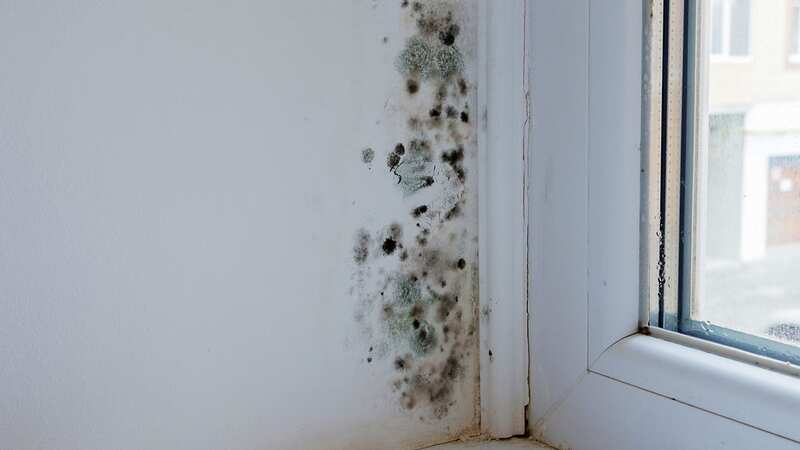Banish stubborn mould from windows and slash energy bills with savvy £4 trick

There’s nothing worse than unsightly mould growing across your window sill, but one expert has shared his simple trick for preventing moisture and slashing energy bills.
Around 85 percent of Brits grapple with mould inside their homes, while nine percent have no idea that the pesky fungi can cause health issues. Black mould on windows is often caused by excess condensation, usually from a lack of ventilation inside the building.
When it makes an unwelcome appearance, many people turn to bleach and biocidal products - but cleaning expert Jamie Jones has urged homeowners to take action sooner. The home improvement specialist, from Open Space Concepts, warned: "Mould thrives in damp and poorly ventilated areas in the home, and can cause significant health risks, including respiratory issues and structural damage to homes, which can be costly.
"During the winter months, many properties suffer more from mould growth due to condensation, and traditional methods of mould prevention such as dehumidifiers and regular cleaning, often don’t work asexpe effectively in providing long-term solutions."
So, if you’re looking for cost-effective ways to banish mould, follow Jamie’s simple and effective steps below.
 Shop prices 'are yet to peak and will remain high' as inflation hits new heights
Shop prices 'are yet to peak and will remain high' as inflation hits new heights
Add plastic to windows
The expert has hailed window insulation film as "one of the best" ways to keep energy costs down and also prevent mould. He said: "Adding a layer of plastic on windows is a cost-effective method that acts as insulation, minimising heat loss in colder months. The plastic also acts as a barrier against drafts, keeping cold air out and preventing warm air from escaping, causing rooms to feel warmer and ultimately lowering energy bills. This is especially beneficial for older or poorly insulated windows."
What’s more, some types of window plastic provide UV protection, which can help to block harmful ultraviolet rays that can fade furniture and also increase the risk of skin cancer for people who sit close to the window.
For those wanting extra protection against mould and draughts, a window insulation double glazing shrink film kit can be bagged for £3.98 from DIY Direct. You can also pick up the film for £7 at Wicks or £10 at Dunelm.
Manage indoor plants
Vibrant plants inside the home can be appealing and promote air quality, but if they’re not properly managed, they can contribute to mould growth.
He said: "Excessive watering of plants or poor drainage in plant pots can lead to a build up of water in the soil, creating a damp environment and over time, fallen leaves or organic matter can decompose and further contribute to moisture build-up, making the issue worse.
"To prevent mould growth associated with indoor plants, people should ensure optimal drainage by using pots with drainage holes and placing saucers beneath pots to catch any excess water. Regularly inspecting and removing plants for dead or decaying plant matter can also help control moisture levels and reduce the risk of mould growth."
Repair any leaks
In many cases, damaged leaks can exacerbate mould development as they create damp environments that the fungi thrives in.
Jamie added: "Even the smallest leaks can increase dampness in rooms and create the necessary conditions for mould to grow and spread if they’re left undetected and untreated." The expert suggests regularly inspecting and maintaining plumbing, roofing and other potential sources of leaks.
Monitor indoor humidity
In rooms that are prone to moisture buildup, such as bathrooms and kitchens, humidity levels should be between 40 and 60 percent, Jamie explained.
He said: "By purchasing a hygrometer you’re able to easily know how humid your room is. If you find that some rooms have higher moisture levels, consider using a dehumidifier or installing an exhaust fan."
 8 money changes coming in February including Universal Credit and passport fees
8 money changes coming in February including Universal Credit and passport fees
Jamie concluded "When it comes to mould, remember that prevention is key. It’s important to stay observant and address any signs of moisture or mould growth quickly so that, with proper maintenance, you can keep it at bay and create a healthier environment for yourself and your family."
Read more similar news:
Comments:
comments powered by Disqus

































